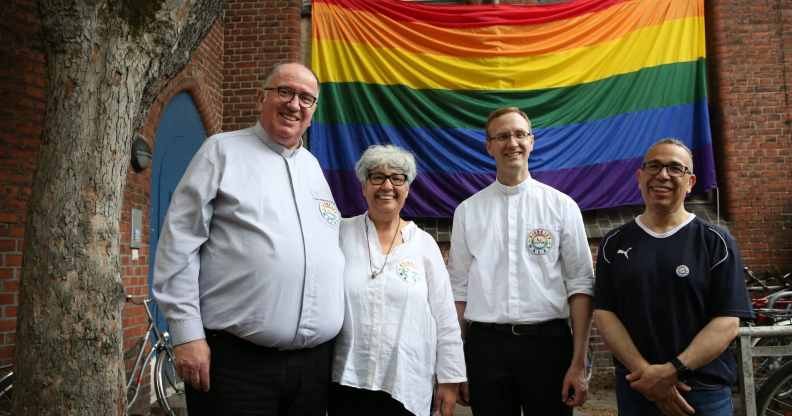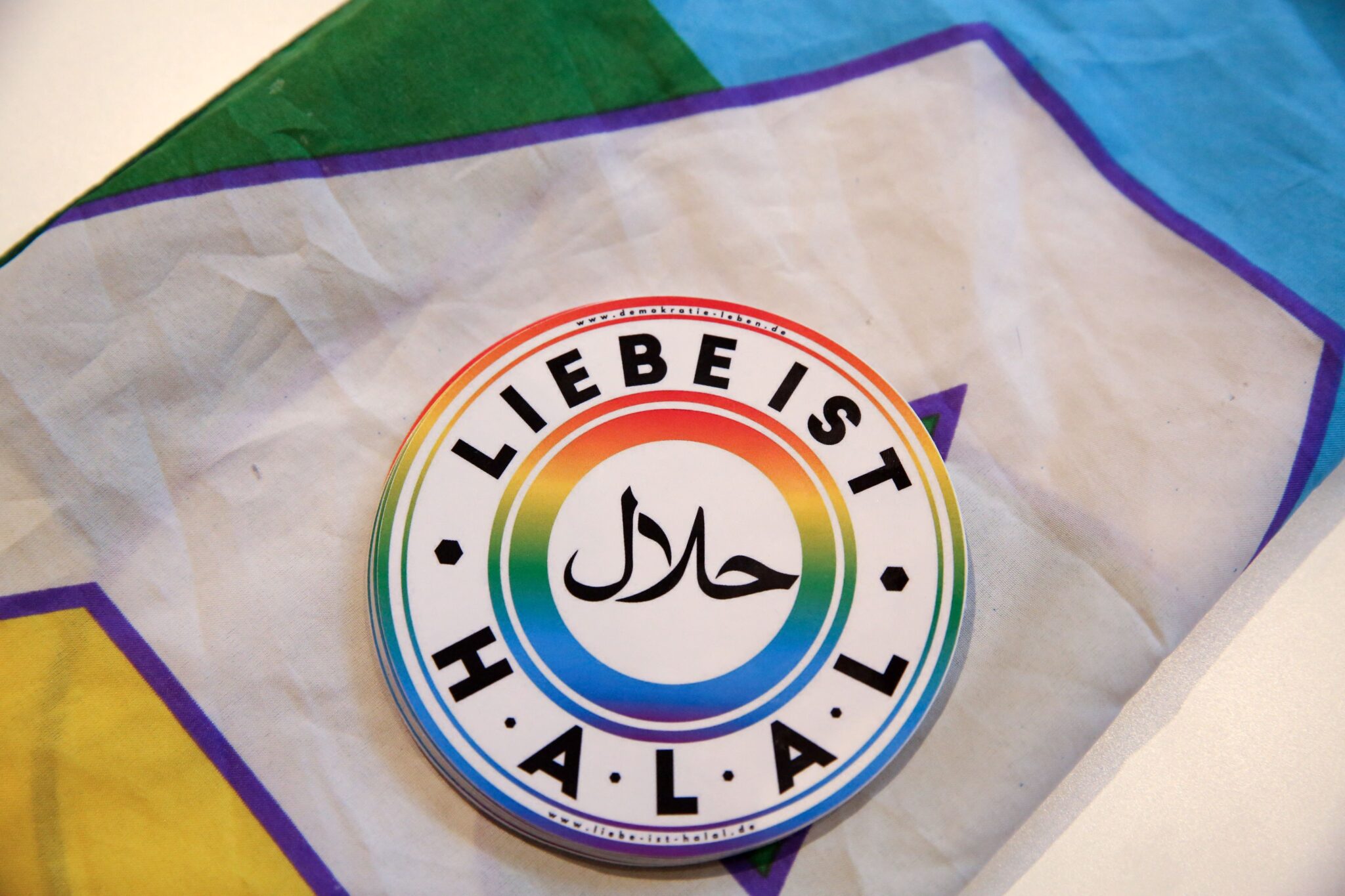Mosque becomes ‘first in Germany’ to fly LGBTQ+ Pride flag: ‘Queer people can also believe in God’

(L-R) Bertold Höcker, superintendent of the Evangelical church community in central Berlin, Seyran Ates, founder of the Ibn Rushd-Goethe mosque, Christian Guth, pastor for community outreach of the Evangelical church community in central Berlin, and Mo El-Kateb, imam of the Ibn Rushd-Goethe mosque, pose in front of a rainbow flagafter it was hoisted outside the Ibn Rushd-Goethe mosque in Berlin, Germany on July 1, 2022. (Photo by Adam BERRY / AFP) (Photo by ADAM BERRY/AFP via Getty Images)
A Berlin mosque has proudly declared its support for LGBTQ+ rights by flying the Pride flag – saying it is the first in Germany to do so.
The Ibn Rushd-Goethe Mosque displayed the flag – a classic Pride flag with a symbol that reads “love is halal” on the front – for the first time in front of an excited audience on Friday (1 July).
Mosque founder Seyran Ateş told Queer.de that she believed the flag is “extremely important” for LGBTQ+ people of the Muslim faith.

A sticker reading “Love is Halal” lies atop a rainbow flag inside the Ibn Rushd-Goethe mosque in Berlin after a larger rainbow flag was hung on the building’s exterior wall in Berlin, Germany on July 1, 2022. (Photo by Adam BERRY / AFP) (Photo by ADAM BERRY/AFP via Getty Images)
“It shows that they do not have to choose between their faith and their sexual identity, but are accepted as such, as they are,” she continued.
Attending the unveiling ceremony was culture senator for Berlin, Klaus Lederer, and state chairman Kai Wegner, among various other members of the community.
One of the mosque’s six imams, Mo el-Ketab, told Deutsche Welle that the mosque would serve as a “safe place for people who are different, so they too can experience the spiritual side of their lives. I hope that many other mosques will also show the flag in this way or set other positive signs for the LGBTQ+ community.”
Berlin CSD board member Marc Eric-Lehmann was also at the mosque’s ceremony, saying that the display was “an incredibly strong sign” for the progression of LGBTQ+ rights.
“Queer people can also be religious and believe in God,” he said. “We should not just be talking about safe spaces in bars and clubs in Berlin, we also have to talk about safe spaces in the places of worship.”
Berlin Pride, commonly referred to as Berlin Christopher Street Day (CSD), is set to begin on 23 July, with roughly 500,000 people expected to attend. The city’s first Pride occurred in 1979 and aimed to promote LGBTQ+ visibility and fight back against inequality.
It will host two major LGBTQ+ events across July – one is the Lesbian and Gay Festival on 16-17 July, with the other being Christopher Street Day, better known as the official Pride day, on 23 July.
In other parts of the country, Pride has been ongoing. A Pride march in Karlsruhe took place on 4 June but descended into chaos after several men violently attacked the crowd and set a Pride flag on fire.
Despite vowing to improve LGBTQ+ rights considerably over the past few years, Germany still has a long way to go in its pledges to reform laws surrounding queer minorities.
As part of its efforts, Germany appointed its first-ever commissioner for the acceptance of sexual and gender diversity in January 2022. Green Party politician Sven Lehmann was appointed to oversee the country’s LGBTQ+ strategy.

